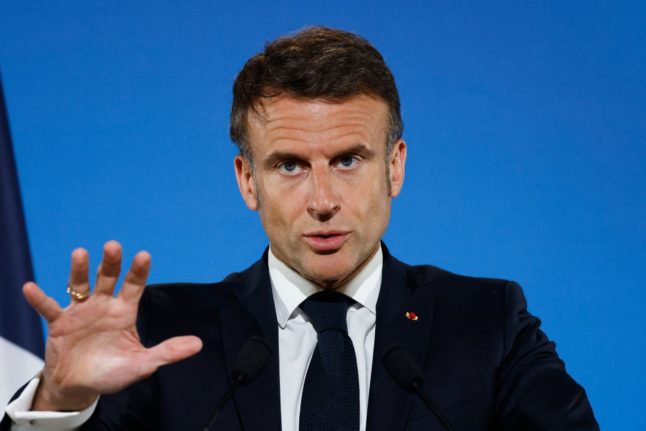With his emphasis on, “strategic autonomy” for Europe in the economy and defence, many see subsequent events like the Covid pandemic and Russia’s invasion of Ukraine validating Macron’s vision.
But the minister acknowledged that the president’s star power might be “less powerful than in 2019”, when voters last picked the Brussels parliament.
Macron’s popularity has been battered by two years of minority government and contentious reforms on issues including pensions and immigration.
Polls show that inflation driven by successive crises is also a top concern for people feeling the pinch in their weekly shopping.
Surveys point to support in the high teens for Macron’s centrist party, well below the far-right Rassemblement National (RN) at around 30 percent, while the Socialists are snapping at the presidential camp’s heels for second place.
“It would be a real earthquake if the president’s majority came third” in the European elections, said political scientist Bruno Cautres.
The head of the governing party’s list for the elections, the little-known Valerie Hayer, is failing to make an impact, especially in the face of high-profile figures leading the rival lists in the shape Jordan Bardella, 28, for the far right and Raphael Glucksmann for the left.
It now appears Macron is ready to wade into the campaign in person.
On Thursday, Macron “wants to reclaim the initiative, avoid humiliation and try to keep the number-two spot at any cost,” Cautres said, noting that there was little hope his party could overtake the RN.
Heading into the European election, “Macron is hanging on to the core of his base”, said communications consultant Marie d’Ouince, a veteran of French centre-left politics.
“It’s still very early” in the campaign, she added, suggesting that support for the president’s party, “may crystallise bit by bit, but you need the right arguments”.
“We’re organised, we have the right candidate… above all we have the right ideas,” Macron said in Brussels last week alongside Hayer, a sitting MEP who has never held a government post.
For d’Ouince, “with recent international events, since Covid, Europe has become part of everyday life for French people”.
Macron should use the speech to “tally up everything Europe has contributed for France”, she said.
“Macron has always been at the cutting edge on the European question,” lending his voice weight at “a grave moment” for the bloc, Cautres said.
But he will have to remember he is addressing the French voting public, not just a prestigious university or think-tanks in Paris and Brussels.
Macron “has to be simple”, using “sentences… with a subject, a verb and an object,” d’Ouince said, citing a maxim of former president Francois Mitterrand.
“For instance, ‘If we hadn’t had Europe, we wouldn’t have had the vaccines'” against Covid, she suggested.
The eurosceptic, anti-immigrant RN has its riposte to Macron prepared. “This speech, whose content I can anticipate… will also mobilise our voters,” figurehead Marine Le Pen said this week.
She added that RN would call for France’s national parliament to be dissolved for new elections if the president’s party suffers a crushing defeat.
With three years until France’s next presidential election, Macron will hope to avoid setting up the RN for a win after twice selling himself as the man to exclude the far right from power.
He cannot run again in 2027, which adds the challenge of fending off a succession battle in his own camp that could leave him a lame duck.
Recent polls show his approval rating at just below 30 percent, leaving the risk that “his unpopularity wins out and people don’t listen to him”, d’Ouince said.



 Please whitelist us to continue reading.
Please whitelist us to continue reading.
Member comments